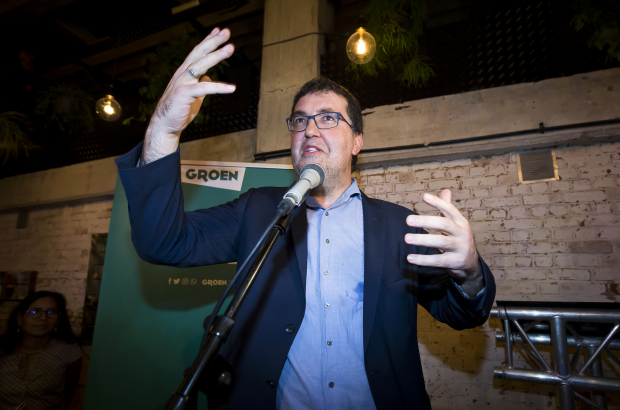- Daily & Weekly newsletters
- Buy & download The Bulletin
- Comment on our articles
Local elections: Groen makes biggest gains in Flanders, CD&V remains strongest municipal party
The municipal elections that took place yesterday, which determine the formation of city councils and mayors for the next six years, saw eco party Groen and the far-right Vlaams Belang making the biggest gains in seats across Flanders. Groen also saw a big jump in seats in Brussels.
While those parties saw the biggest growth, CD&V remains the largest municipal party, hanging on to its coalitions in a majority of Flemish cities and towns. N-VA, however, has spread its popularity from the city of Antwerp to neighbouring towns across the province.
N-VA also did extremely well in Sint-Pieters-Leeuw, Halle, Tervuren, Aalst and in Hasselt, where it is likely to deliver the mayor of Limburg’s capital. In Antwerp, the party earned 35% of the vote, meaning it is guaranteed a place in the ruling coalition.
Votes are still being counted in some municipalities this morning, but it is clear that Groen and Vlaams Belang have made the greatest gains. Groen – referring to yesterday as “Green Sunday” – is now Antwerp’s second-largest party, with more than 18% of the vote, double the result in the last local elections in 2012.
Waves to the left and right
In Leuven, Groen has become the third-largest party, with a 4% increase on the 2012 elections to reach nearly 20% of the votes. It gained seats in dozens of cities and towns, including Ypres, Grimbergen, Ostend, Tongeren and Waregem.
Groen’s cartel with the French-speaking Ecolo in Brussels also brought major wins, with its 34.6% in Watermaal-Bosvoorde making it the biggest party. The cartel is also the clear winner in Vorst, with more than 25% of the vote, 7.6% more than in 2012. The cartel is also set to lead Elsene’s city council, with 33% of the votes, a full 9.6% more than in 2012.
Party president Meyrem Almaci suggested that Groen has increased its seats on local councils by 50%, though that figure has yet to be confirmed. “This result is a deafening cry for more humane, fair and healthier politics, and it’s only the beginning,” she said. “The real power to change things is with the citizens, who have voted for that today.”
The far-right Vlaams Belang also gained many seats in this election, with party president Tom Van Grieken saying: “The Vlaams Belang is back.” The party, with an “our people first” guiding ideology, has made extraordinary gains since its low point in 2006 following a decision by Belgium’s political parties to form a cordon sanitaire, agreeing to shut the party out of any coalition at all levels of government.
It is the most popular party in Denderleeuw, on the border with Brussels, earning 26% of the vote, a whopping 13% increase on 2012. It is now the second-largest party in Aalst with more than 19% of the vote, following N-VA’s 33%, and it is the second-largest party in Schoten, with nearly 21% of the vote.
Vlaams Belang really has its eye on Ninove, however, a city of 38,000 in East Flanders, where it is set to get 40% of the vote under the list name Forza Ninove. It was already tied with Open VLD as the town’s biggest party six years ago, but this year has increased its vote by 13.5%. The list is led by Guy D’haeseleer, who Van Grieken claims will be “the first Vlaams Belang mayor”.
Vlaams Belang changed its party name and platform following the 2004 cordon sanitaire agreement, and a new agreement has never been signed by all parties. However, it has never been part of a majority coalition, not even in Ninove.
“The big question is if the cordon will be broken soon,” wrote Ghent University local politics professor Herwig Reynaert in Knack. “But what is clear is that, here and there, the agreement is going to be tested.”
Once all votes are counted, parties will enter negotiations to form new city councils and appoint mayors. The current administration continues until the end of the year.
For a discussion in English on the power of local councils and election results, register for Local Elections: The Day After
Photo: Wouter Van Besien, who led the list for Groen in Antwerp, thanks the crowd for making it the port city’s second-largest party
©Kristof Van Accom

















